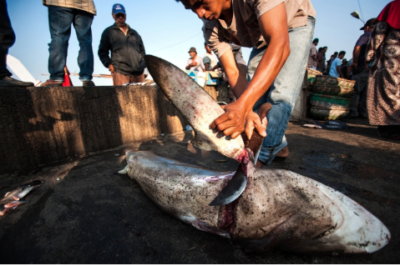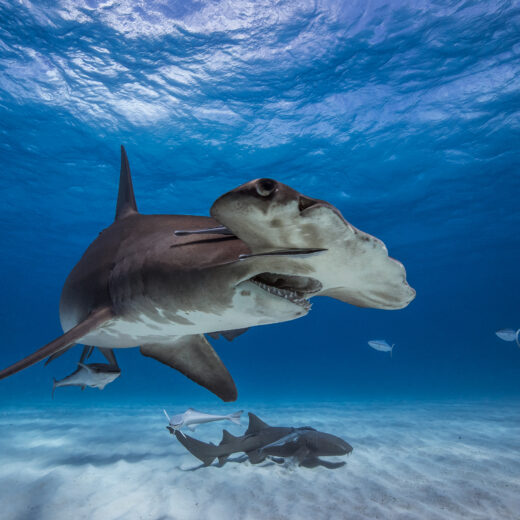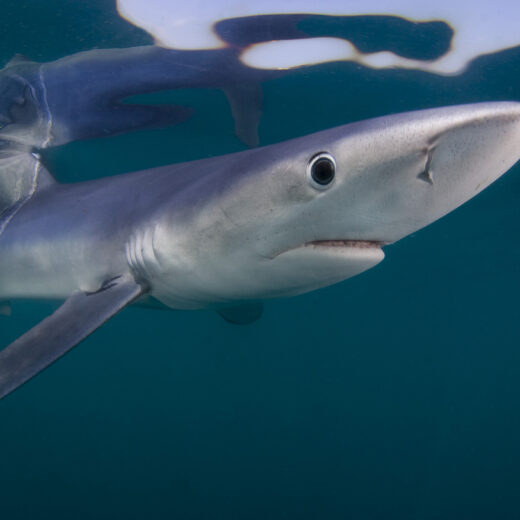


By: Simon Denyer
BEIJING — Air China has become the first airline in mainland China to ban shark fin cargo, marking a dramatic shift in attitudes toward trade in endangered wildlife here and throwing a lifeline to shark populations threatened with imminent extinction.
The news, released late Friday, came just a week after China announced plans to ban its domestic ivory trade, a landmark decision of vital importance in ending an epidemic of elephant poaching in Africa.
It marks the country’s gradual transformation from being the biggest source of the problem — as the largest market in illegal wildlife products — to becoming a major part of the solution.
“Scientists estimate that fins from up to 73 million sharks a year are used for shark’s fin soup, with much of the trade in shark fin destined for China,” said Alex Hofford, a wildlife activist from the conservation group WildAid in Hong Kong, which applauded Air China for taking “an ethical stance” to help protect sharks and oceans. “It’s a bold move, and this is likely to have a huge and lasting impact on shark populations and marine ecosystems worldwide.”
Hofford said the decision by China’s national flag carrier “puts FedEx to shame” — the U.S. multinational courier company has resisted repeated calls to take a similar step, despite a petition signed by 300,000 people, and an appeal from a coalition of animal welfare conservation groups who expressed concerns that its service could be used to carry fins of endangered shark species. That would be a violation of the Convention on Trade in Endangered Species (CITES).
Courier company United Parcel Service bowed to pressure to ban shark fin shipments in August 2015, acknowledging concerns about authorities’ enforcement capabilities and the adequacy of visual inspections to determine whether shark fins being shipped belonged to endangered species. Rival DHL took a similar step in 2014.
FedEx said its service terms and conditions prohibit any shipments that violate applicable laws or regulations.
“FedEx continues to comply with these laws and regulations, and our customers are required to do the same,” said Jack Pfeiffer, a FedEx communications adviser.
At least 35 other airlines and 17 global container shipping lines around the world have also signed up to the campaign to ban the shipment of shark fin, including, in July, the Chinese state-owned shipping giant China Cosco Shipping.
Meanwhile, China has been moving to restrict the shark fin trade for several years. In 2013, as part of its campaign against government corruption and extravagance, it banned shark’s fin soup from official banquets.
Last year, China issued data showing shark fin imports had declined by 82 percent between 2011 and 2014. WildAid reported that wholesale prices of shark fin had declined by 50 percent to 67 percent, from $270 to $300 a kilogram in 2011 to $90 to $150 in 2014.
The decline is a measure of the dramatic shift underway in China, where legend has it that shark’s fin soup was created more than 1,000 years ago by an emperor in the Sung dynasty who was trying to show off to his guests.
Consumption of the expensive soup shot up in recent years, as it became popular at banquets and weddings as a sign of social status among the country’s rapidly expanding middle class.
Sharks are among the ocean’s top predators and play a vital role in the marine ecosystem, but the $1 billion annual trade in shark fin has sent their numbers plummeting worldwide. Conservationists say 74 species of sharks are threatened with extinction; 11 are critically endangered, while 15, including the great hammerhead, are classified as endangered.
Just a decade ago, though, most Chinese people were oblivious to the issue, with many not even knowing the soup — known in Chinese as “fish wing” soup — was made with shark fins. But attitudes began to change after WildAid enlisted Chinese professional basketball player Yao Ming, who played for the Houston Rockets, to front a public awareness campaign in 2006.
In a statement, Air China Cargo said it had a “long-standing commitment to playing our role in a more sustainable world” and acknowledged the unsustainability of the global shark trade.
“We understand the community’s desire to promote responsible and sustainable marine sourcing practices, and this remains important to Air China Cargo’s overall sustainable development goals.”
In October, the 182 CITES nations voted at a summit in Johannesburg to add silky sharks and thresher sharks to a protected list, despite strong opposition from Japan and Iceland, the Guardian reported.
WildAid called on Hong Kong to do more to stamp out the shark fin trade there, which it said was “essentially unregulated.” Air China’s decision will also put more pressure on China Southern Airlines, headquartered in Guangzhou, which is emerging as a shark fin trade hub in its own right, almost as big as Hong Kong.
In a letter to the U.S. government and FedEx directors sent Sunday, WildAid also urged FedEx to reconsider its stance on shark fin in response to Air China’s move, calling its policy of shipping shark fin “irresponsible, unsustainable and likely illegal under CITES.”
“China is doing the right thing. How about the United States?” it asked.
Stay in touch and get the latest WildAid updates.
SIGN UPAbout WildAid
WildAid is a non-profit organization with a mission to protect wildlife from illegal trade and other imminent threats. While most wildlife conservation groups focus on protecting animals from poaching, WildAid primarily works to reduce global consumption of wildlife products such as elephant ivory, rhino horn and shark fin soup. With an unrivaled portfolio of celebrity ambassadors and a global network of media partners, WildAid leverages more than $308 million in annual pro-bono media support with a simple message: When the Buying Stops, the Killing Can Too.
Journalists on deadline may email communications@wildaid.org


